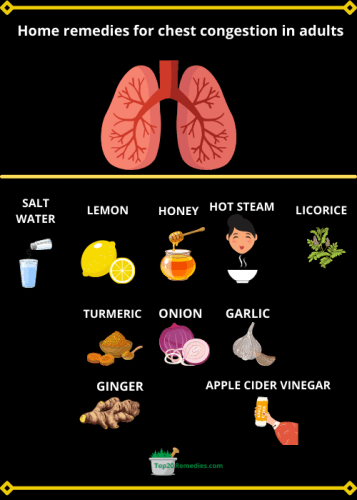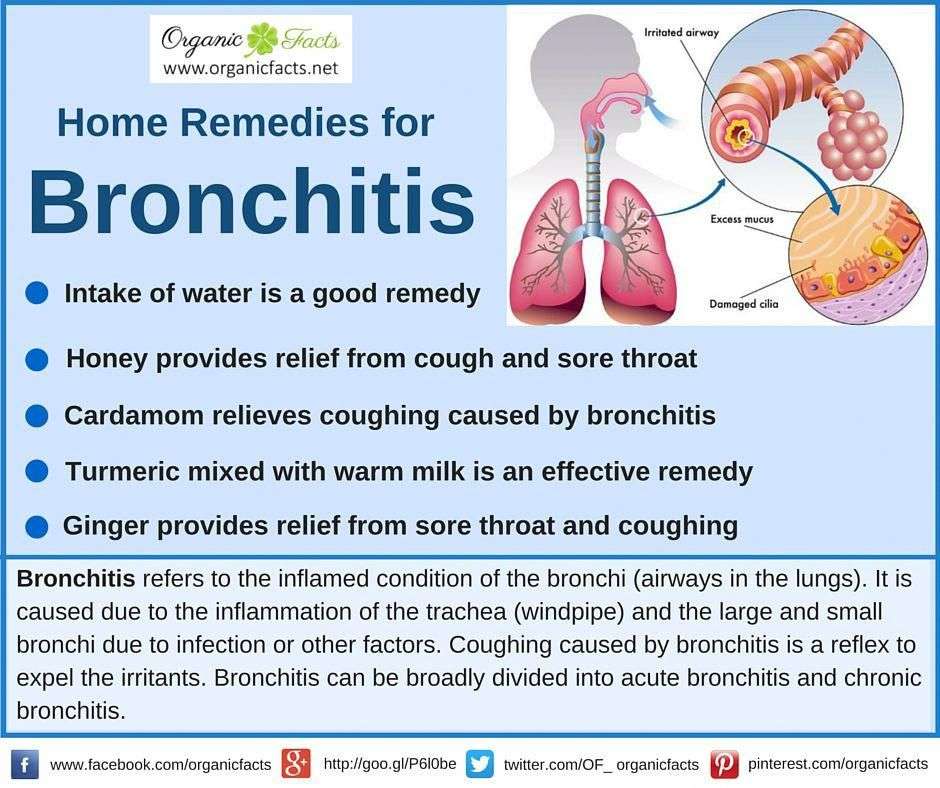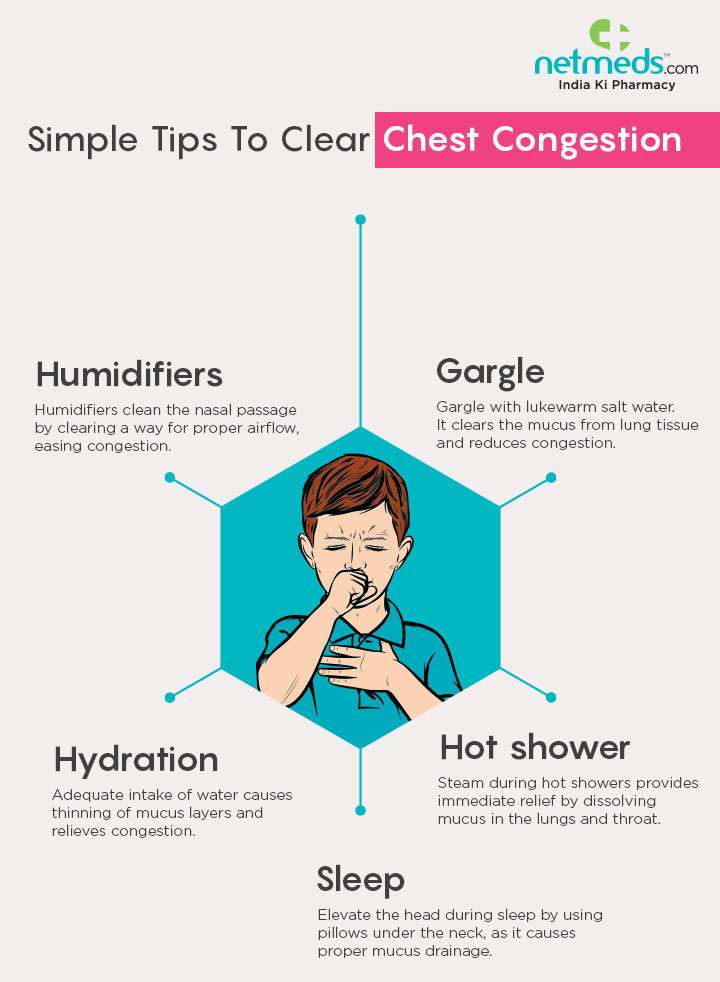What Does It Mean If I Have Chest Congestion But Im Not Sick
Chest congestion is generally a sign that something is off in your lungs. Even if you do not have other symptoms of illness, it is important to see your doctor if you have any chest congestion lasting more than 3 days. If you do not feel sick, other than your chest congestion, you could be experiencing symptoms of allergies, asthma, pneumonia, COPD or even lung cancer or heart failure. As such, chest congestion should be taken seriously, even if you do not feel sick. Take note of how you feel overall, noticing if you may also be experiencing symptoms you may have ignored, like fatigue or weakness, hoarseness, weight loss or gain, swollen lower extremities, chest, back or arm pain or shortness of breath. These symptoms may indicate more serious concerns with your heart or lung health. If you feel chest congestion, but not sick at all, it is still important that you get checked out by a doctor, just to make sure that nothing else is wrong.
Is It Allergies Or A Cold
Sometimes it can be hard to tell the difference between allergies and the common cold. There are more than a hundred strains of cold viruses. Each tends to become widespread at certain times of the year, which is why you may mistake a cold for a seasonal allergy. Allergies occur at the same time every year and last as long as the allergen is in the air . Allergies cause itching of the nose and eyes along with other nasal symptoms. Colds last about one week and have less itching of the nose and eyes.
Why Is Seasonal Allergies Associated With Asthma And Wheezing
People suffering from both asthma and seasonal allergies experience symptoms because their immune systems are over-sensitive to substances normally encountered daily. This includes pollen which we typically associate with seasonal allergies.
When your body overreacts to pollen, respiratory airways become inflamed and more mucus is produced to trap the pollen particles. This causes your airways to narrow, in turn making it more difficult for you to breathe.
For many seasonal allergies sufferers this only affects the upper respiratory tract and symptoms are few and mild. However, in those who are prone to asthma, inflammation affects a larger part of the respiratory system. This leads to a greater and deeper degree of inflammation, worsening asthma symptoms.
This is when the sufferer experiences tightness in the chest. As they breathe, the air passes through these narrowed passages, and creates a whistling sound as it goes. This whistling sound is called wheezing.
Recommended Reading: Allergies Causing Nausea
What About Herbal Remedies
As the cause of your congestion is seasonal allergies, then treating this should bring the most effective relief from your symptoms.
For example, Pollinosan Allergy Relief Spray combine seven different herbs which help to target the bodys abnormal reaction to pollen. This will help not only to ease nasal congestion, but other symptoms associated with seasonal allergies.
If you are looking for a herbal remedy specifically for nasal congestion, you may find that Pollinosan Allergy Relief Spray brings you much needed relief. It reduces inflammation of the mucous lining of nasal passages, without breaking down the bodys natural protection.
Chest Congestion: Causes Symptoms And Treatments

In this article:
Chest congestion is a common symptom of influenza, bronchitis, and several other respiratory tract infections that trigger an overproduction of mucus.
When you inhale a microbial pathogen or external irritant, the mucous membranes are stimulated to produce increased amounts of phlegm to trap the foreign invader. The infection-causing agent is then coughed out from the respiratory tract along with the excess mucus.
It is when these slimy fluids accumulate in the lungs that you may experience a feeling of heaviness and tightness in the chest, which is referred to as chest congestion.
Recommended Reading: Allergies Cause Swollen Lymph Nodes
Are There Conventional Medicines To Help Me
If your congestion is causing you to suffer from sinus pain, then you may find that painkillers help to relieve this symptom. Speak to your doctor or pharmacist to find a painkiller specifically for sinus pain.
However, decongestants and painkillers both ease the symptoms of congestion but do not target the seasonal allergies at the root of the problem. A doctor or pharmacist is likely to suggest anti-histamines to reduce the bodys production of histamine in response to the pollen allergen. Some anti-histamines cause drowsiness so should not be taken if you are driving or working machinery.
When To See A Doctor For Congestion
You will need to see a doctor if your symptoms become serious. Most of the time, congestion is serious when you begin to see the following symptoms: black mucus, coughing up blood, trouble breathing, fever higher than 100 degrees, you are unable to sleep, wheezing, and no relief of symptoms in ten days.
You May Like: 24 Hr Zyrtec
How Allergies Affect Your Lungs
Spring is in the air and so are many of the allergens that cause the misery of seasonal allergies. Symptoms of seasonal allergies can cause itching and watering in your eyes, congestion and runniness in your nose, and itching in your throat. Allergies can affect your lungs to cause wheezing, coughing, and other uncomfortable signs and symptoms of seasonal allergies. Seasonal allergies can also trigger asthma, allergic bronchitis, and other lung problems.
Pollen is one of the most common triggers of allergies, according to the Asthma and Allergy Foundation of America. Plants release pollen each spring, summer, and early fall. This pollen fertilizes plants of the same species of trees, grasses, and weeds. Exposure to these pollens and other allergens causes allergic reactions that can affect your lungs.
Don’t Fear Spring Allergies And Asthma
- Health & Wellness
- Lung Health and Diseases
It’s finally spring! The days are getting longer, flowers are starting to bloom, the weather is warming up and oh, unfortunately asthma and allergy triggers are making their seasonal appearance.
Pollen is perhaps the most obvious springtime asthma and allergy offender. As flowers, weeds, trees, grass and other plants begin to bloom, they release pollen into the air. If you’re allergic to pollen, you know what happens nextachoo! Sneezes, sniffles and a strong desire to draw the blinds and stay inside for a couple of months. Allergic reactions can cause symptoms in your nose, lungs, throat, sinuses, ears, lining of the stomach or on the skin. Allergies can also trigger symptoms of asthma, making it more difficult to breathe. And pollen isn’t the only spring allergy and asthma trigger. Air pollution and temperature changes can also make your symptoms worse.
But don’t fear. You don’t have to trade your spring kickball league for a Netflix account or wear a hazmat suit to venture outdoors. Follow these tips to ensure your spring is every bit as exciting as it is for Potoka the giraffe.
Recommended Reading: Can Seasonal Allergies Cause Lymph Nodes To Swell
How To Get Rid Of Mucus Buildup In Lungs Naturally
Looking for natural ways on how to get rid of mucus in your lungs? Here are some helpful tips provided by Medical News Today and the National Jewish Health Foundation that your clinician may recommend you try at home:
Stay Hydrated
If youre experiencing the onset of a cold or allergies, drink plenty of fluids, particularly warmer beverages , as they can help thin mucus and provide immediate relief from chest pain caused by congestion.3
Take a Bath or Hot Shower
Another tip from Medical News Today is to slowly inhale the steam from a hot bath or shower. You can also fill a bowl with hot water and gently breathe in the steam and moisture with a towel covering the bowl and your face. This can help loosen mucus and clear it from your nose, reducing sinus pressure, as well as your throat, minimizing chest congestion.4
Practice Huff Coughing
The National Jewish Health Foundation recommends practicing huff coughing: Take a breath that is slightly deeper than normal. Use your stomach muscles to make a series of three rapid exhalations with the airway open, making a ha, ha, ha sound.5 Practice this technique to help loosen and move mucus upward toward the larger airways.
Can Allergies Cause Chest Heaviness
Almost anything, including foods, animals, medications and airborne substances, can cause an allergic reaction.Allergy symptoms can range from mild to severe. Most allergic reactions are mild and easily treatable, but occasionally a severe reaction can become life-threatening. One symptom that has the potential to become very serious is a feeling of tightness or heaviness in the chest. If you have chest heaviness, seek medical attention.
If you are experiencing serious medical symptoms, seek emergency treatment immediately.
You May Like: Over The Counter Rash Pills
Wheezing Is Also A Symptom Of Whats Known As Allergic Asthma A Person May Be Allergic To Something That Sets Off Wheezing And/or Coughing Fishbein Said Every Once In A While Someone Will Not Have Asthma And Have Very Isolated Allergic Reactions To Things Mostly Seen With Pets Like Cats Or Dogs They Will Only Wheeze In That Scenario But Never Other Times
According to the American Academy of Allergy, Asthma and Immunology, half of the 20 million Americans who have asthma have the allergic type of asthma, in which something specific sets off their attack.
Bronchitis, meanwhile, mostly occurs as the result of an infection. However, adult smokers who cough a lot are said to have chronic bronchitis. Again, this is semantics, and one physician might call something bronchitis that another calls asthma, Fishbein said.
Patients likely would need a methacholine challenge to discern whether they have asthma, said Fishbein. Physicians can administer the methacholine challenge test , which is widely used to evaluate for airway hyperresponsiveness, a hallmark sign of asthma.
Regardless of the diagnosis or the cause of the symptoms, patients with any difficulty breathing, coughing, wheezing or chest tightness should see their primary care doctor for an evaluation. If their doctor suspects an allergic cause, patients may be referred to an allergist. If at any time breathing becomes extremely difficult, patients should head straight to the emergency room.
What Are The Types Of Rhinitis

There are several types of rhinitis:
- Allergic rhinitis is caused by allergies to substances called allergens.
- Seasonal allergic rhinitis is sometimes called hay fever. But, people with seasonal allergic rhinitis do not have to have a fever and do not have to be exposed to hay to develop this condition. It is an allergic reaction to pollen from trees, grasses and weeds. This type of rhinitis occurs mainly in the spring and fall, when pollen from trees, grasses and weeds are in the air.
- Perennial allergic rhinitis is caused by allergens that are present all year long. The primary causes of this type of rhinitis are allergies to dust mites, mold, animal dander and cockroach debris.
- Non-allergic rhinitis is not caused by allergens. Smoke, chemicals or other irritating environmental conditions may provoke non-allergic rhinitis. Hormonal changes, physical defects of the nose and the overuse of nose sprays may also cause it. Sometimes medications cause it. Often, the cause of this type of rhinitis is not well understood. But it is common in patients with non-allergic asthma. The symptoms are similar to allergy symptoms.
- Infectious rhinitis is possibly the most common type of rhinitis. It is also known as the common cold or upper respiratory infection . Colds occur when a cold virus settles into the mucous membranes of the nose and sinus cavities and causes an infection.
You May Like: Flonase Sleeplessness
What Causes Hypersensitivity Pneumonitis
There are more than 300 known allergens that, when inhaled as a fine dust, can cause hypersensitivity pneumonitis. Some breathing problems have names based on where the allergen comes from:
- Farmers lung. Seen in farmers and cattle workers, this condition is caused by inhaling mold that grows on hay, straw, and grain.
- Bird fanciers lung. Also called pigeon breeders disease, this condition is caused by inhaling dust specks from feathers or droppings of many types of birds.
- Humidifier lung. This condition can develop by inhaling a fungus that grows in humidifiers, air conditioners, and heating systems, especially if they are not cleaned regularly.
- Hot tub lung. This condition may develop by inhaling germs found in the water mist coming from indoor hot tubs.
What Is Chest Congestion Caused By
Chest congestion can be caused by any number of issues, including acid reflux, allergies, asthma, bronchitis, COPD, cystic fibrosis, pneumonia, respiratory infections, tuberculosis and other pulmonary conditions. While some amount of chest congestion is normal for common conditions like a cold or allergies, it is a good idea to see a doctor if your chest congestion causes other symptoms or lasts longer than three days.
Don’t Miss: Zyrtec Allergy Relief
Is It A Cold Or An Allergy Should You Call Your Primary Care Provider
Your child has a runny nose and a headache. You are worried it might be more than just a cold, but youre not sure. How do you tell the difference between a cold, allergies and a chest infection? Should you call your primary care provider?
Juhee Lee, MD, an attending physician with the Division of Allergy and Immunology at Childrens Hospital of Philadelphia , offers guidance to parents on:
- Recognizing the symptoms of different conditions that cause nasal congestion
- When to call your primary care provider
- What specialists can help
Allergies & Chest Congestion Symptoms
Allergies affect each person differently and are caused by an overreaction of the immune system to a substance, according to the Asthma and Allergy Foundation of America 1. The immune system recognizes a relatively harmless substance as a potentially dangerous substance and releases certain chemicals to fight it off. These chemicals cause common allergy symptoms such as nasal discharge, watery eyes and asthma. Chest congestion from allergies is the result of allergy-induced asthma or the effects of postnasal drip. Talk to a doctor to determine the cause of any chest congestion related to allergies.
If you are experiencing serious medical symptoms, seek emergency treatment immediately.
Don’t Miss: Cetirizine Hydrochloride Allergy
The Triggers Are In Your Environment
While many different substances can trigger allergic asthma, they all have one thing in common: Theyre in the environment, not in your food or your medication.
Pet dander, dust mites, cockroaches, mold and pollen can all trigger allergic asthma, says Dr. Purcell.
If pollen or mold trigger the condition, it may occur only seasonally. If your pets or the dust mites on your bedding trigger it, you may suffer year-round, he notes.
What Causes Chest Congestion And How To Get Rid Of It
Written byBel Marra HealthPublished onJuly 7, 2017
Chest congestion is a common respiratory symptom that could be an indication of the flu or cold. However, there are also cases where it can be a sign of a more serious health issue, like an infection or heart disease.
Most people understand that chest congestion is a sign of excessive mucus in the lower airway. It is normally due to inflammation of the airways and lungs and involves some degree of restricted airflow. Chest congestion can be really uncomfortable. For some individuals, it can even be painful because the lungs fill up with excess mucus and other fluids. Coughing is the bodys natural way of getting rid of the mucus that has built up.
You May Like: Do Snickers Have Tree Nuts
How Is Acute Bronchitis Diagnosed
Healthcare providers can often diagnose acute bronchitis by taking a medical history and doing physical exam. Tests may be done to rule out other diseases, such as pneumonia or asthma. Any of these tests may be used to help confirm a diagnosis:
- Chest X-rays. A test that uses invisible radiation beams to make images of internal tissues, bones, and organs, including the lungs.
- Arterial blood gas. This blood test is used to analyze the amount of carbon dioxide and oxygen in the blood.
- Pulse oximetry. An oximeter is a small machine that measures the amount of oxygen in the blood. To get this measurement, a small sensor is taped or clipped on a finger or toe. When the machine is on, a small red light can be seen in the sensor. The sensor is painless and the red light does not get hot.
- Cultures of nasal discharge and sputum. Testing the sputum you cough up or swab from your nose may be done to find and identify the microorganism causing the infection.
- Pulmonary function tests. These are tests that help to measure the ability of the lungs to move air in and out of the lungs. The tests are usually done with special machines that you breathe into.
Signs And Symptoms Of Chest Congestion

The buildup of mucus in your respiratory tract not only restricts airflow but also adversely affects your paranasal sinuses, ears, throat, and voice.
The pooling of the excess mucus in the lungs leads to chest congestion, which is usually accompanied by the following symptoms:
- Mild discomfort or pain in the chest
- Rapid or labored breathing
- Impaired hearing and olfactory function
- Headaches
- Pain when swallowing or coughing when swallowing
- Gag reflex or vomiting
You May Like: Robitussin Allergy-cough Syrup

